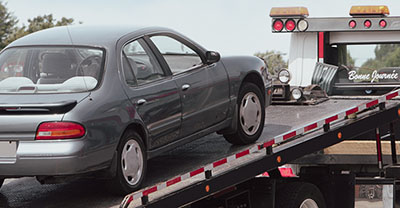Unexpected costs of skipping car maintenance


0 min. read
Keeping your car in top shape doesn’t have to be costly. In fact, those little maintenance tasks we often delay, like oil changes and tire rotations, can save you significant money and stress. Neglecting even a few hundred miles on a recommended service interval can lead to expensive repairs or breakdowns later.
Here's why staying on top of your car's maintenance is a smart move for both your wallet and your safety. Explore Dairyland’s cheap car insurance options to find the coverage that fits your lifestyle and budget.
Oil changes

An oil change is a budget-friendly way to keep your engine healthy—and it’s a breeze compared to a full engine replacement! Skipping this routine service can have costly consequences down the line.
Regular maintenance costs
The average cost of an oil change ranges from $35 to $75.*
Consequences of neglect
Fresh oil lubricates parts, prevents overheating, and extends engine life. Skipping oil changes can lead to:
Engine wear and damage
Overheating
Oil sludge buildup
Reduced performance
Increased emissions
Engine seizure
Replacing an engine can cost between $5,000 and $10,000 based on estimates from Consumer Affairs.*
Tire rotations and swaps

Rotating your tires regularly is an affordable way to maximize their lifespan. It can also help you avoid situations like unexpectedly changing a flat tire on a busy highway.
Regular maintenance costs
The average cost of a tire rotation is $60 to $72.*
Consequences of neglect
Neglecting to regularly rotate your car's tires can lead to:
Uneven tire wear
Reduced traction and safety
Decreased fuel efficiency
Noise and vibration
Increased stress on suspension
Invalidated warranties
A new set of four tires can cost from $400 to $1,200, according to Consumer Reports, plus potential accident repair bills ranging from $1,000 to $5,000.*
Brake system checks and replacement

Costs will vary with your brake system, but whether it’s pads, rotors, or calipers, routine checks are vital for optimum braking performance and overall safety. Failing brakes can not only put you at risk, but also lead to expensive repairs and accident-related costs.
Regular maintenance costs
The average cost for a brake system inspection ranges between $88 and $111*, as reported by RepairPal.
Consequences of neglect
While paying around $100 for an inspection might seem expensive, it's far cheaper than ignoring worn brakes and potentially significant accidents. Neglecting worn brakes can lead to:
Noise and vibration
Reduced stopping power
Increased tire wear
Damage to brake components
Brake failure
According to AutoZone, replacing the pads, rotors, and calipers can cost between $300 to $800 on average, but may exceed $1,000.* However, accident-related vehicle repairs and costs due to brake failure can range from $5,000 to over $20,000, * as this hypothetical scenario shows:
John was driving his car on a busy highway when he suddenly realized his brakes weren’t responding. Despite his attempts to stop the vehicle, he collided with the car in front of him, causing a multi-car pileup. Costs incurred from the accident included:
Vehicle repairs:
John's car: Front-end damage requiring a new bumper, headlights, and radiator: $2,500.
Other cars: Damage to two other vehicles involved in the pileup: $3,000.
Medical bills:
John: Minor injuries treated in the emergency room: $1,200.
Other drivers/passengers: One passenger in another car required hospitalization for a broken leg: $5,000.
Towing and rental car:
Towing: Cost to tow John's car and the other damaged vehicles: $400.
Rental car: Cost for John to rent a car while his vehicle is being repaired: $300.
Legal fees and insurance:
Legal fees: Consultation with a lawyer regarding the accident: $500.
Insurance premium: Potential insurance premium increase due to the accident: $1,000 over the next year.
Total Cost: $13,900
This scenario illustrates how a brake loss accident can lead to significant financial burdens, emphasizing the importance of regular brake maintenance. This is a hypothetical example for illustrative purposes only. Actual costs and legal outcomes may vary based on individual circumstances and jurisdiction.

Transmission fluid changes

Transmission fluid is vital for smooth gear changes and maintaining the health of your car's transmission. In newer vehicles, maintaining clean transmission fluid also helps you stay compliant with warranty requirements.
Regular maintenance costs
J.D. Power estimates the average cost of a transmission fluid change at $80 to $100.*
Consequences of neglect
Old transmission fluid fails to properly lubricate and cool the transmission, potentially leading to complete engine failure. Here are several related transmission issues:
Overheating
Reduced performance
Transmission wear and damage
Transmission failure
Loss of fuel efficiency
Contaminant buildup
Many vehicles include transmission fluid changes in their maintenance schedule, usually required every 30,000 to 60,000 miles. Repairing a failed transmission can cost between $2,000 and $5,000.*
Air filter replacement

It's a small part, but a clogged air filter can make a big difference, and it’s one of the most affordable vehicle maintenance tasks. The air filter's primary purpose is to prevent dirt, dust, and other particulate matter from getting into the internal combustion engine and damaging its components.
Regular maintenance costs
A cabin air filter can range between $20 and $50 depending on the filter type, according to J.D. Power.*
Consequences of neglect
A clogged air filter chokes your engine's airflow, reducing performance and forcing it to work harder, which means burning more fuel. Other problems can include:
Reduced engine performance
Engine wear and damage
Poor air quality inside the vehicle
Increased tailpipe emissions
Dirty spark plugs
Reduced lifespan of engine components
A dirty cabin air filter can cause dust and other allergens to accumulate inside the car, which can be especially aggravating for allergy sufferers.
Coolant flush

The cost of a flush pales in comparison to the cost of replacing a damaged radiator or facing major engine repairs. Coolant helps keep your engine from overheating, but over time, it breaks down. This service is vital for preventing engine damage and steep repair bills.
Regular maintenance costs
The average cost of a coolant flush is $373-$400, according to RepairPal.*
Consequences of neglect
Allowing coolant to age in your car can lead to several serious consequences:
Overheating
Corrosion and rust
Clogged radiator and passages
Poor heating performance
Coolant leaks
Reduced coolant life
Invalidated warranty
Repairing the radiator can cost $300 to $900 based on CostHelper data, plus up to $4,000 for severe engine repairs, according to CarCare.org.*
Driving with an empty gas tank

While not a scheduled maintenance task, avoiding constantly running your car on fumes can help your engine live a longer, happier life.
Regular maintenance costs
The average regular gas price in the United States is approximately $3.44 per gallon, according to Gas Buddy. Filling a 15-gallon tank would cost around $51.60.*
Consequences of neglect
Running your car on a nearly empty fuel tank doesn't just put you at risk of running out of gas mid-drive—it can also lead to serious and costly issues. Low fuel levels can trigger issues including:
Fuel pump damage
Reduced fuel pump lifespan
Air in the fuel system
Sediment in the fuel
Fuel filter clogs
Engine misfires and stalling
Increased condensation
Inaccurate fuel gauge readings
These issues can result in poor engine performance, reduced fuel efficiency, and costly repairs. Keeping your tank at least a quarter full can help you avoid these problems.

Get roadside assistance coverage

Regular maintenance is essential for keeping your car running smoothly and avoiding costly repairs. However, unexpected breakdowns can still occur. For added peace of mind, Dairyland® insurance offers optional roadside assistance coverage. This service can help you quickly and safely get back on the road if an unanticipated event leaves you stranded. Request a free quote today.
The general information in this blog is for informational or entertainment purposes only. View our blog disclaimer.
*Data accuracy is subject to this article's publication date.
This document is made available by Sentry Insurance Company and its subsidiaries and affiliates (collectively “Sentry”) with the understanding that Sentry is not engaged in the practice of law, nor is it rendering legal advice. The information contained in this document is of a general nature, and neither that information nor the hypothetical loss example included in this document is intended to address the circumstances of any particular individual, entity, or set of facts. Legal obligations may vary by state and locality. No one should act on the information contained in this document without legal advice from competent and licensed local professionals. THE INFORMATION CONTAINED IN THIS DOCUMENT IS DISTRIBUTED BY SENTRY “AS-IS,” WITHOUT ANY WARRANTIES. SENTRY WILL HAVE NO LIABILITY TO ANY PERSON OR ENTITY WITH RESPECT TO ANY LOSSES OR DAMAGES CAUSED, OR ALLEGED TO HAVE BEEN CAUSED, DIRECTLY OR INDIRECTLY BY THIS DOCUMENT, REGARDLESS OF WHETHER SUCH CLAIM IS BASED ON CONTRACT, WARRANTY, TORT (INCLUDING NEGLIGENCE AND FOR PROPERTY DAMAGE AND DEATH), OR OTHER GROUNDS.









